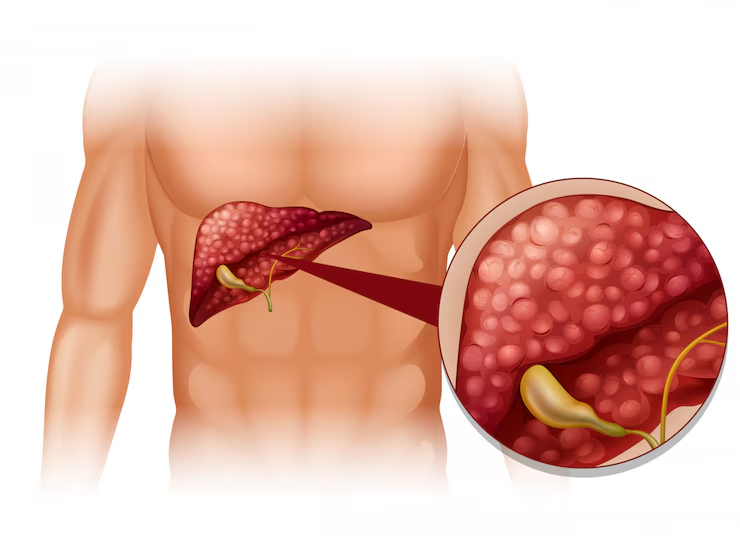Pancreatic cancer is one of the most difficult types of cancer to detect early. This makes it more dangerous than many others. Knowing the common risk factors can help people stay alert and speak to a doctor sooner. Early action may make a big difference. This article breaks down the key risks that can increase your chances of getting pancreatic cancer.
Lifestyle Risks You Can Control
Some habits in daily life can raise the chances of getting pancreatic cancer.
- Smoking is one of the biggest risk factors. The harmful chemicals in tobacco damage the pancreas.
- Being overweight or obese also increases risk. Fat in the body can affect how the pancreas works.
- Drinking a lot of alcohol can cause long-term swelling in the pancreas, which may lead to cancer.
- A diet full of processed meats and low in fruits and vegetables may increase the risk.
These habits can also lead to other health problems. Watching for cancer symptoms and changing lifestyle choices can help reduce the risk.
Health Conditions That Raise Risk
Some health problems may also lead to a higher risk of pancreatic cancer.
- Type 2 diabetes, especially long-term cases, is often seen in people who later get pancreatic cancer.
- People with chronic pancreatitis, a condition that causes long-term swelling of the pancreas, have a higher risk.
- A sudden case of new-onset diabetes in older adults may be an early sign of pancreatic cancer.
It’s best to speak to a doctor if you have any of these conditions and notice cancer symptoms like stomach pain or sudden weight loss.
Risks You Can’t Change
Some risk factors are out of your control, but knowing them can help.
- Age matters. People over 60 are more likely to develop pancreatic cancer.
- Family history is also a big risk. If your close relatives have had this cancer, your chances go up.
- Some genetic conditions can raise your risk. These include BRCA gene changes or Lynch syndrome.
If you have any of these risks, you should keep an eye out for cancer symptoms and have regular check-ups.
Why Early Action Helps
Noticing signs early and getting help can improve your chances. Many people do not notice cancer symptoms until it spreads. These may include stomach pain, back pain, dark urine, or yellowing skin. If caught early, treatment is more likely to work. Regular health checks and staying aware can help catch pancreatic cancer at an earlier stage.
Conclusion
Pancreatic cancer is hard to detect early, which makes it serious. But knowing the risks can help you stay alert. Some risks come from lifestyle habits, while others are related to age or family history. Watch for warning signs and speak to a doctor if anything feels wrong. If you already have health conditions like diabetes or pancreatitis, regular health checks can help. Paying attention to cancer symptoms and acting early can make a real difference.
- Pancreatic Cancer Risk Factors | Key Causes & Warnings
- Understand major risk factors for pancreatic cancer including genetics, smoking, and lifestyle. Stay aware of symptoms and preventive measures for early action.
- cancer symptoms, pancreatic cancer
Related posts:
 Best Topical Finasteride & Minoxidil Spray for Hair Regrowth
Best Topical Finasteride & Minoxidil Spray for Hair Regrowth
 Blue Grass Guppy: A Mesmerizing Addition to Your Aquarium Life
Blue Grass Guppy: A Mesmerizing Addition to Your Aquarium Life
 Famotidine Pepcid for Cats: What Pet Owners Need to Know for Their Feline Friend
Famotidine Pepcid for Cats: What Pet Owners Need to Know for Their Feline Friend
 Navigating Mental Health: The Importance of Black Therapists in New York for Bipolar Disorder and Depression Treatment
Navigating Mental Health: The Importance of Black Therapists in New York for Bipolar Disorder and Depression Treatment
 The Benefits of Home-Based ABA Therapy for Children with Autism
The Benefits of Home-Based ABA Therapy for Children with Autism
 How Massage Therapy Can Improve Your Health: A Guide for Queens Residents
How Massage Therapy Can Improve Your Health: A Guide for Queens Residents
 A Complete Guide on the Pricing of the Composite Bonding in London
A Complete Guide on the Pricing of the Composite Bonding in London
 Your brief and useful guide to removable orthodontic appliances
Your brief and useful guide to removable orthodontic appliances








